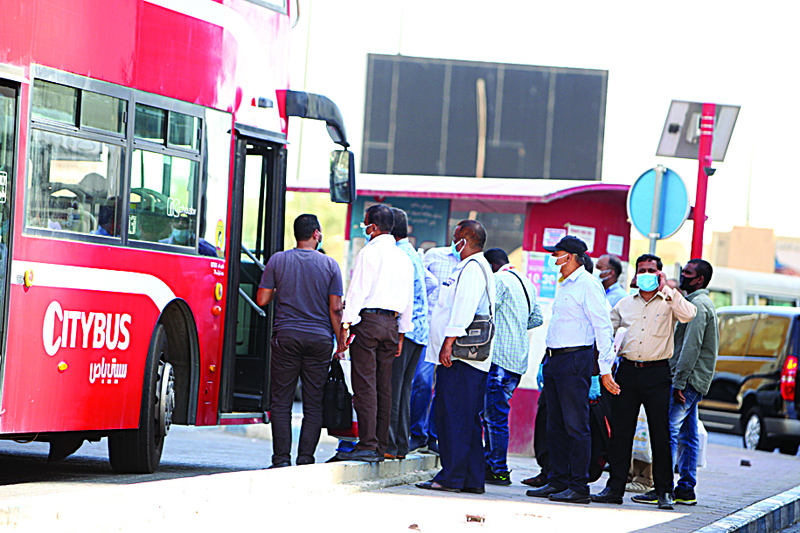
By Nawara Fattahova
KUWAIT: Expat employees who reach 60 years of age and are not university graduates have a short time remaining in Kuwait. They won't be able to work anymore, but they may have a chance to stay in Kuwait - according to certain conditions - if their children are working in the country.
When this decision by the Public Authority for Manpower was issued a few months back, nobody explained the reason for it. People in this category - many of whom have called Kuwait home for most of their lives - usually work in technical or low-wage jobs, which are shunned by Kuwaitis. If the reason was potential pressure on medical services due to their age, then can pay more for health insurance, for instance.
An administrative mistake can change the life of an entire family. Abu Mohammed, who has been living in Kuwait for almost 50 years, will be forced to leave the country. "Unfortunately, I'm paying for somebody else's mistake. Although I'm a university graduate, the mandoub (company representative) did not submit my certificate, and they registered me as a high school graduate. I never checked this information before as I didn't need to.
When the mandoub informed me of the new decision and said he won't be able to renew my visa next year, I was shocked. I told him to change my educational status based on my degree, but he said that it's not allowed to modify the status now, as many years have passed," the 65-year-old Jordanian told Kuwait Times.
'Long work experience'
Abu Mohammed hopes that something changes. "Most of these people have been living in Kuwait for 20 or 30 years and even longer, and are loyal to this country much more that those who arrived just a few years ago. Kuwait should benefit from our long work experience here. Most of us feel like strangers when we visit our home countries, as we have lived the majority of our lives here," he said.
The only solution for such residents is to transfer to a family visa, but this option is not available for Abu Mohammed. "Unfortunately, my children live abroad. I only have three younger brothers living in Kuwait, and I can't be dependent on them as it's not allowed. If this decision doesn't change, I will have to leave the country, sadly," he added.
Most of these people have families abroad depending on them, and many will find it difficult to return to their homelands, especially developing countries. Abu Abdullah is a 61-year-old Iranian who has been living in Kuwait since the early 1960s, when he arrived here as a child. When he renewed his residency in July, his employer told him that he won't be able to renew his residency next year due to the new regulation.
'Very tough situation'
"I work as a driver at a private company and I only receive KD 250 monthly. I send most of my salary to my family in Iran, where I have my wife and six children. The situation there is very tough, and even my married daughters depend on my support. In Kuwait I only have one daughter, who is married. I can't become her dependent as she is not employed and her residency is dependent on her husband. I really don't know what I will do next year, as the situation in Iran is difficult and in my old age no one will employ me," stressed Abu Abdullah.
There are many more similar cases. Abu Abbas, 62, is an Iranian blacksmith living in Kuwait for over 25 years. "I was very sad to hear that this decision will be applied from January. My family back home depends on my salary. Also, I'm living with only one kidney, so I have to drink at least 5 liters of mineral water daily. If I go back home in this situation, it would be impossible to get this quantity of water there and most probably I will not survive," he said dejectedly.
According to a report published by Al-Qabas Arabic daily on Tuesday, many company owners believe that this decision is unjust towards occupational workers who were trained inside and outside Kuwait and honed their skills until they became experts, and it is not fair to let them go in this manner. The report said Kuwait Chamber of Commerce and Industry Chairman Mohammad Jassim Al-Saqer said the decision, besides not being right, will have negative effects on certain economic activities, adding the peak of a man's contributions are during the period between 60 and 70 years of age.
According to the latest available official statistics, there were 79,506 expatriate workers over 60 years in Kuwait as of June 30, 2020, of whom 73,480 were employed by private firms and 6,026 in the public sector. The statistics, released by the Central Statistical Bureau's Labor Market Information System, do not specify the educational levels of those labor forces.




